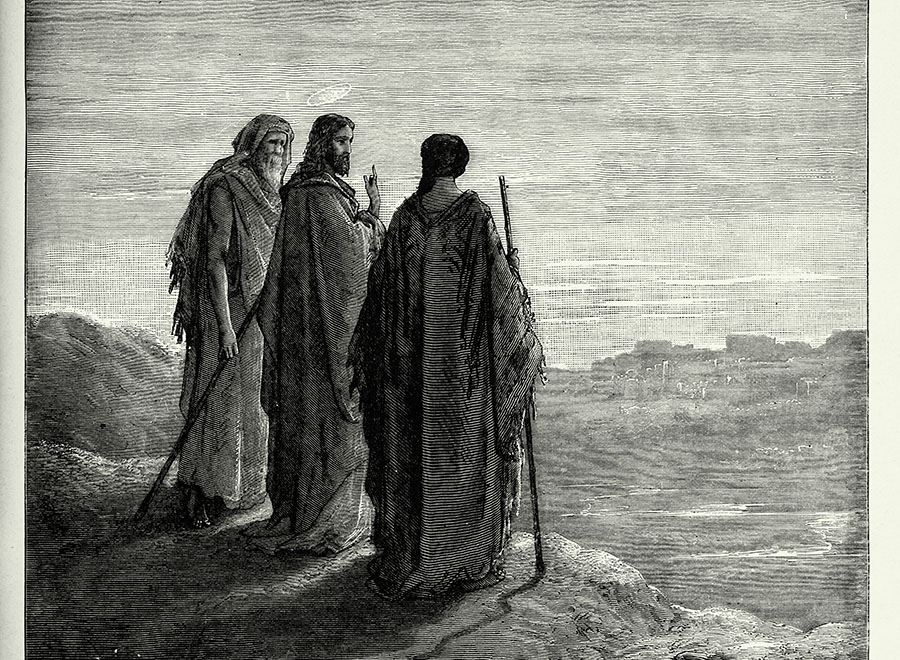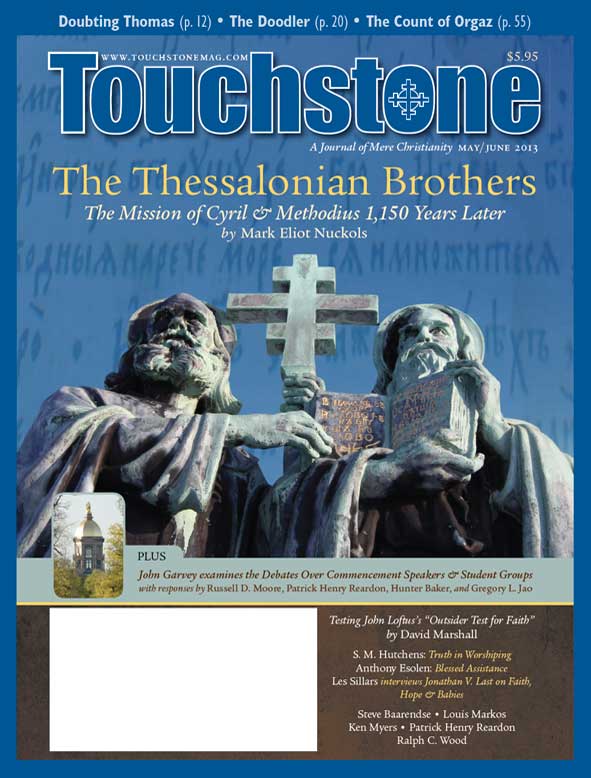Feature
Into All the World
Testing John Loftus's "Outsider Test for Faith" Shows Why There Are Billions of Christians Today
by David Marshall
As author of one of the first books rebutting the New Atheism, I've spent considerable time over the past several years in dialogue with atheists, including such quasi-luminaries as Hector Avalos, Richard Carrier, Jerry Coyne, PZ Myers, and Victor Stenger. Aside from atheists who also happen to be philosophers—who in my experience tend to argue more effectively—many seem to regard reason much as the young Augustine of Hippo saw chastity: "Lord, make me logical, but not just yet."
One New Atheist I have enjoyed talking with, though, is former pastor John Loftus, who has written and edited several books attacking Christianity. His signature argument is what he calls the Outsider Test for Faith (just published in March as a book of that title by Prometheus Press). In its simplest form, the "OTF" is the contention that Christians should be as skeptical about the faith in which they were (presumably) raised as they are about, say, Islam or Inca worship of the earth goddess Pachamama. He believes that if Christians dared to view their religion from an objective, outside perspective, they would abandon it in droves. So the OTF is also presented as an argument against Christianity.
Of course, this challenge is nothing new to observant Christians. News about Jesus captured the hearts of "outsiders" like Justin Martyr, Clement of Alexandria, and Origen precisely because it first met the needs of those who taught them, the "tutors to Christ" within Greco-Roman civilization, from the "inside." A century ago, G. K. Chesterton explained his own experience of the gospel by likening it to the story of an English sailor who "discovered" England under the misconception that he had landed on an island in the South Pacific. This experience, said Chesterton, combined the "fascinating terrors of going abroad . . . with all the humane security of coming home again."
That has been my experience, too. I have spent most of my adult life far from the Christian ghetto: in secular universities, Communist China, Buddhist Taiwan and Japan, post-Christian England, and swimming in a sea of ancient religious texts. I have also taken an academic interest in the process by which much of the world went from "outside" to "inside," that is, the history of Christian missions. Like Chesterton's sailor, the further I left Christendom behind, the more the facts seemed to bring me back to Christ.
A Four-Point Argument
But, as C. S. Lewis said, we need to be reminded more often than taught. I find Loftus's challenge a useful reminder to see how the gospel looks in the context of world religions. So let me describe his version of the OTF, then note some of its problems. I will argue that, far from merely being a rhetorical question, the test represents a grand experiment that has sifted human beliefs in numerous cultures over thousands of years. I'll then argue that Christianity has survived this sifting on the part of billions of passionately engaged "outsiders" because it finds purchase inside the human heart, transforming human traditions from within.
In The Outsider Test for Faith ([OTF] 15–17), Loftus summarizes his argument in four points:
1. The Religious Diversity Thesis: "People who are located in distinct geographical areas around the globe overwhelmingly adopt and justify a wide diversity of religious faiths due to their particular upbringing and shared cultural heritage, and most of these faiths are mutually exclusive."
2. The Religious Dependency Thesis: "To an overwhelming degree, one's religious faith is causally dependent on brain processes, cultural conditions, and irrational thinking patterns."
3. Therefore, it is "highly likely that any given adopted religious faith is false."
David Marshall is the author of several books, including most recently, How Jesus Passes the Outsider Test: The Inside Story (Kuai Mu Press, 2015). He blogs at christthetao.blogspot.com.
bulk subscriptions
Order Touchstone subscriptions in bulk and save $10 per sub! Each subscription includes 6 issues of Touchstone plus full online access to touchstonemag.com—including archives, videos, and pdf downloads of recent issues for only $29.95 each! Great for churches or study groups.
Transactions will be processed on a secure server.
more on christianity from the online archives
more from the online archives
calling all readers
Please Donate
"There are magazines worth reading but few worth saving . . . Touchstone is just such a magazine."
—Alice von Hildebrand"Here we do not concede one square millimeter of territory to falsehood, folly, contemporary sentimentality, or fashion. We speak the truth, and let God be our judge. . . . Touchstone is the one committedly Christian conservative journal."
Support Touchstone
—Anthony Esolen, Touchstone senior editor















